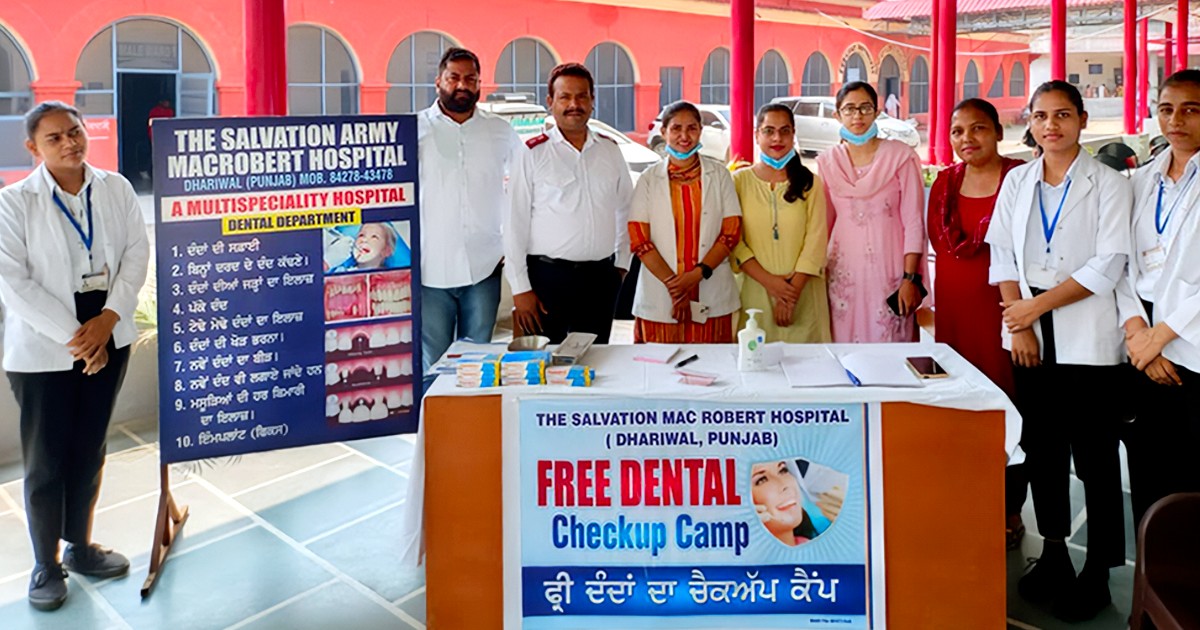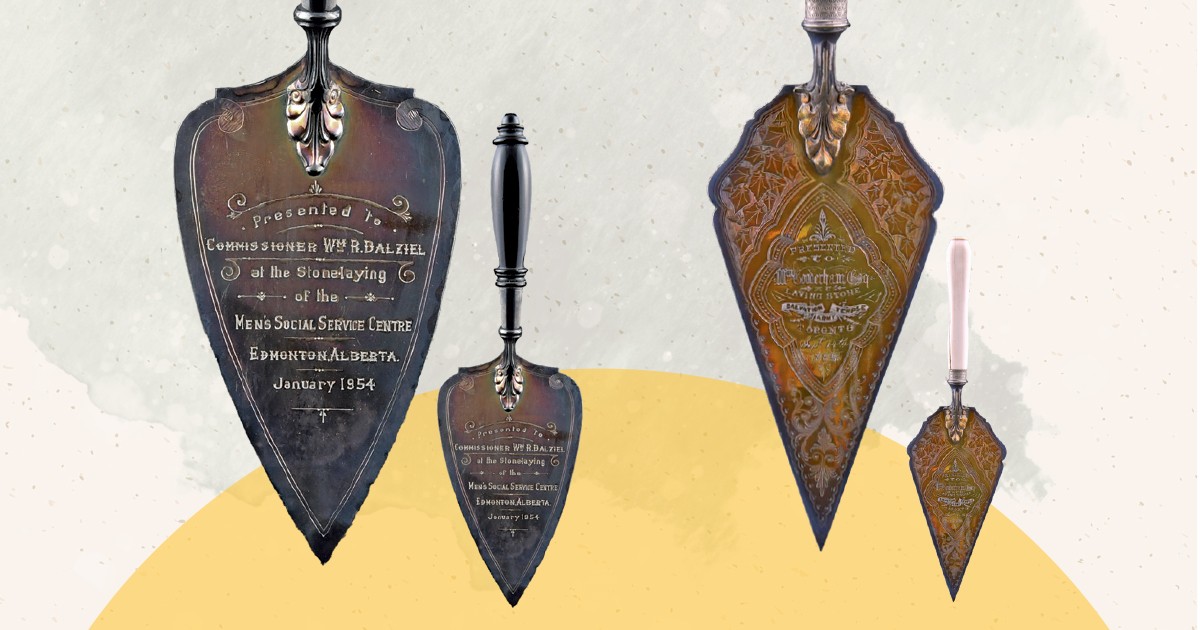According to The Giving Report 2017, produced by CanadaHelps, giving to charity is on the decline in Canada. In 2015, just 21 per cent of individuals claimed donations on their tax returns. And of those who did give, only 18 per cent donated to a religious organization. In The Salvation Army, tithes and offerings for the 2016/17 budget year totalled about $33 million. If you divide that by the number of soldiers and adherents, it comes out to $675 per person, or about $12 per week.
As the new stewardship consultant for the Army in Canada and Bermuda, I visit corps across the territory, providing training and resources to help people live as good stewards of their time, talent and treasures. But even more than stewardship, I want to encourage generous living. Generosity is a word that reflects the heart of God. When we grasp what we have been given, the indescribable gift of grace, it calls us to respond with openhearted, open-handed giving—that’s why generosity is one of the measures of a healthy, growing congregation.
A corps officer once told me that he couldn’t ask his people to be more generous, because they were already struggling financially. But this deprives our people of the chance to grow spiritually—giving is not only a financial issue, it’s a heart issue. It gives us the opportunity to trust that God will provide for our needs, and there’s a sense of joy and fulfilment that comes from looking beyond ourselves toward a bigger purpose.
So how can we create a culture of generous living? Here are seven places to start.
1. Changing the way we see God. We might have known God for many years, and yet haven’t experienced him as a Father who delights in giving his children good gifts. When we start reflecting on his generosity, we’ll begin to experience generosity in our lives—and then we can also believe it and experience it for our ministry unit and the people around us.
2. Leading by example. To create a culture of generosity, we need to be generous ourselves—we can’t lead others somewhere we haven’t been. Observations of generous congregations show that their leaders set an example. Interestingly, they often don’t even call it being generous, seeing it simply as following Jesus.
3. Preaching and teaching about it. It can feel awkward to talk about money, but it shouldn’t—after all, Jesus talked about it all the time. Sixteen of Jesus’ 38 parables were about how to handle money and possessions. In the Gospels, an amazing one out of 10 verses (288 in all) deals directly with the subject of money. The Bible offers approximately 500 verses on prayer and fewer than 500 on faith, but more than 2,000 on money and possessions.
A holistic theology of money always goes beyond the tithe. It explores the generosity of God, the connection between grace and giving and also between God’s kingdom and our possessions. We need to make the time for giving our tithes and offerings an essential part of worship.
4. Sharing testimonies. There’s nothing more powerful than hearing about real people who have experienced God’s goodness and faithfulness—in finding a job, overcoming financial difficulties or being healed from sickness.
5. Celebrating milestones. We need to celebrate generosity in a healthy and balanced way. Stories of changed lives assure us that we’re not spending our time, talents and treasures in vain. Let’s remember that we accelerate what we celebrate.
6. Influencing the community. We need to partner with other churches and ministries in our community. After all, we’re not seeking to build a denomination or a church; we’re seeking to build the kingdom of God. Let’s join with other faith groups to be generous to our communities. The possibilities are endless. Here’s a great resource for ideas: thebiggive.ca.
7. The sky is the limit. We’re not just looking to pay the bills and balance the budget; our goal isn’t merely a self-sufficient ministry unit. We want to win souls for Christ, and that will require an unlimited number of resources all
the time.
There’s so much more we can do for the kingdom. Let’s dream big! As we cultivate a culture of generosity, we can serve more, influence more and transform more.
Tharwat Eskander is the stewardship consultant in the corps ministries department. If you’d like to arrange training for your corps, contact tharwat_eskander@can.salvationarmy.org.
As the new stewardship consultant for the Army in Canada and Bermuda, I visit corps across the territory, providing training and resources to help people live as good stewards of their time, talent and treasures. But even more than stewardship, I want to encourage generous living. Generosity is a word that reflects the heart of God. When we grasp what we have been given, the indescribable gift of grace, it calls us to respond with openhearted, open-handed giving—that’s why generosity is one of the measures of a healthy, growing congregation.
A corps officer once told me that he couldn’t ask his people to be more generous, because they were already struggling financially. But this deprives our people of the chance to grow spiritually—giving is not only a financial issue, it’s a heart issue. It gives us the opportunity to trust that God will provide for our needs, and there’s a sense of joy and fulfilment that comes from looking beyond ourselves toward a bigger purpose.
So how can we create a culture of generous living? Here are seven places to start.
1. Changing the way we see God. We might have known God for many years, and yet haven’t experienced him as a Father who delights in giving his children good gifts. When we start reflecting on his generosity, we’ll begin to experience generosity in our lives—and then we can also believe it and experience it for our ministry unit and the people around us.
2. Leading by example. To create a culture of generosity, we need to be generous ourselves—we can’t lead others somewhere we haven’t been. Observations of generous congregations show that their leaders set an example. Interestingly, they often don’t even call it being generous, seeing it simply as following Jesus.
3. Preaching and teaching about it. It can feel awkward to talk about money, but it shouldn’t—after all, Jesus talked about it all the time. Sixteen of Jesus’ 38 parables were about how to handle money and possessions. In the Gospels, an amazing one out of 10 verses (288 in all) deals directly with the subject of money. The Bible offers approximately 500 verses on prayer and fewer than 500 on faith, but more than 2,000 on money and possessions.
A holistic theology of money always goes beyond the tithe. It explores the generosity of God, the connection between grace and giving and also between God’s kingdom and our possessions. We need to make the time for giving our tithes and offerings an essential part of worship.
4. Sharing testimonies. There’s nothing more powerful than hearing about real people who have experienced God’s goodness and faithfulness—in finding a job, overcoming financial difficulties or being healed from sickness.
5. Celebrating milestones. We need to celebrate generosity in a healthy and balanced way. Stories of changed lives assure us that we’re not spending our time, talents and treasures in vain. Let’s remember that we accelerate what we celebrate.
6. Influencing the community. We need to partner with other churches and ministries in our community. After all, we’re not seeking to build a denomination or a church; we’re seeking to build the kingdom of God. Let’s join with other faith groups to be generous to our communities. The possibilities are endless. Here’s a great resource for ideas: thebiggive.ca.
7. The sky is the limit. We’re not just looking to pay the bills and balance the budget; our goal isn’t merely a self-sufficient ministry unit. We want to win souls for Christ, and that will require an unlimited number of resources all
the time.
There’s so much more we can do for the kingdom. Let’s dream big! As we cultivate a culture of generosity, we can serve more, influence more and transform more.
Tharwat Eskander is the stewardship consultant in the corps ministries department. If you’d like to arrange training for your corps, contact tharwat_eskander@can.salvationarmy.org.










Leave a Comment